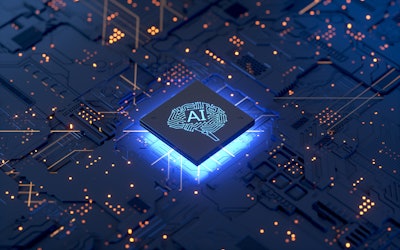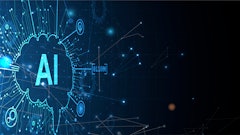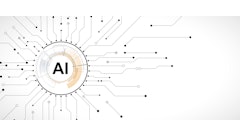
Artificial Intelligence (AI) is shaping up to be a transformative force across various industries, with no exception to cost estimation. One of the most significant advancements is the increased accuracy AI brings to the table. By analyzing extensive historical data, AI models can make highly accurate predictions, learning from past projects to reduce the likelihood of cost overruns.
The ability of AI to learn and evolve is one of its most compelling features. AI systems refine their algorithms with each completed project, leading to even more accurate estimates in future projects. This continuous improvement is crucial for industries where precision in cost estimation is paramount.
As we venture into 2024 and beyond, the following are a few ways AI has the potential to change the cost estimation industry, and the benefits it brings to the table.
- Real-time adjustments – AI can continuously update cost estimates as projects progress to reflect changing conditions, such as supply chain disruptions or labor shortages. This dynamic approach ensures that estimates remain relevant and accurate throughout the project lifecycle. The predictive analysis capabilities of AI extend beyond mere cost estimation. AI can help foresee potential risks and challenges that might inflate costs in the future, allowing businesses to prepare and allocate resources more effectively. This foresight is invaluable in strategic planning and risk management.
- Automation – AI has the ability to make a significant impact when it comes to automating routine and repetitive tasks in cost estimation. This automation frees up human experts to focus on more complex and strategic aspects of cost estimation, enhancing overall efficiency. Moreover, AI's integration with other enterprise systems, like ERP and Project Management tools, offers a comprehensive view of projects, further improving the accuracy of cost estimates.
- Customized estimations – AI excels in considering the unique requirements of each project, including local labor and material costs, to tailor estimates accordingly. This customization ensures that estimates are not only accurate but also relevant to the specific context of each project.
- Data-driven decision making – Leveraging AI-driven insights, businesses can weigh different project methodologies, materials, or strategies based on cost implications, leading to more informed and strategic choices. Additionally, combining AI with Augmented Reality (AR) and Virtual Reality (VR) tools can enhance the visualization of cost data, making it easier for stakeholders to understand where and why costs are incurred.
Beyond estimation, AI can also suggest ways to optimize costs, identifying potential savings without compromising quality. However, the adoption of AI in cost estimation is challenging. The accuracy of AI predictions heavily depends on the quality of the input data. Only accurate or complete data can lead to accurate estimates. Furthermore, there's a risk of over-reliance on AI, which could overshadow the essential role of human judgment, especially in complex projects. Ethical concerns, such as algorithmic bias, must also be addressed to ensure that AI systems are fair and unbiased.
While AI offers a range of advantages in cost estimation, it's crucial to approach its adoption with a balanced perspective, acknowledging its potential benefits and limitations. Integrating AI in cost estimation is not just about adopting new technology; it's about enhancing the strategic decision-making process in project management.



















